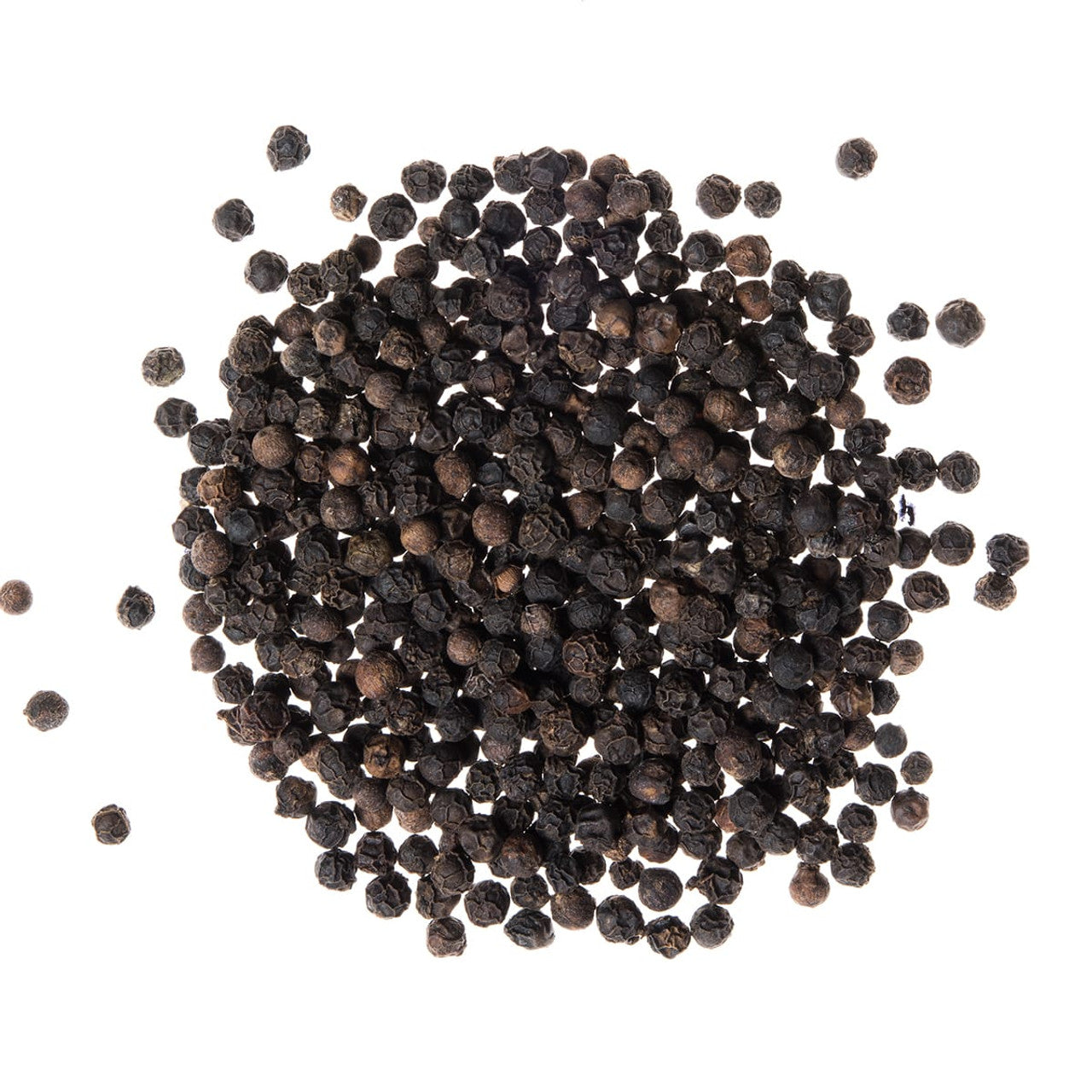
Black Pepper
- Home ›
- Black Pepper

Black Pepper
Black pepper (Piper nigrum) is a flowering vine cultivated for its fruit, which is dried and used as a spice and seasoning. Often referred to as the "king of spices," black pepper is one of the most widely used spices globally and is known for its pungent flavor and numerous health benefits.
Key Benefits of Black Pepper:
1. Rich in Antioxidants: Black pepper contains piperine, an active compound with strong antioxidant properties that help combat oxidative stress and protect cells from damage.
2. Improves Digestion: Black pepper may stimulate the production of digestive enzymes, enhancing digestion and alleviating issues like bloating and gas.
3. Enhances Nutrient Absorption: Piperine in black pepper can increase the bioavailability of certain nutrients and compounds, such as curcumin (found in turmeric), making them more effective.
4. Anti-Inflammatory Properties: Black pepper has anti-inflammatory effects that can help reduce inflammation in the body, potentially benefiting conditions like arthritis.
5. Supports Weight Loss: Some studies suggest that black pepper may aid in weight management by promoting fat metabolism and enhancing overall metabolic activity.
6. Antimicrobial Properties: Black pepper has been shown to have antibacterial and antifungal properties, which can help fight infections.
7. Respiratory Health: Black pepper may help relieve respiratory conditions by acting as an expectorant, aiding in the expulsion of mucus and phlegm.
8. Improves Blood Sugar Levels: Some research indicates that black pepper may help regulate blood sugar levels, which could be beneficial for individuals with diabetes.
Culinary Uses:
Black pepper is incredibly versatile and is commonly used in:
- Seasoning: Ground or whole, it is used to enhance the flavor of a wide variety of dishes, from savory to sweet.
- Spice Blends: An essential ingredient in many spice blends, including garam masala and mixed herbs.
Nutritional Profile:
Black pepper is low in calories but contains small amounts of several essential nutrients, including vitamin K, vitamin C, and fiber.

